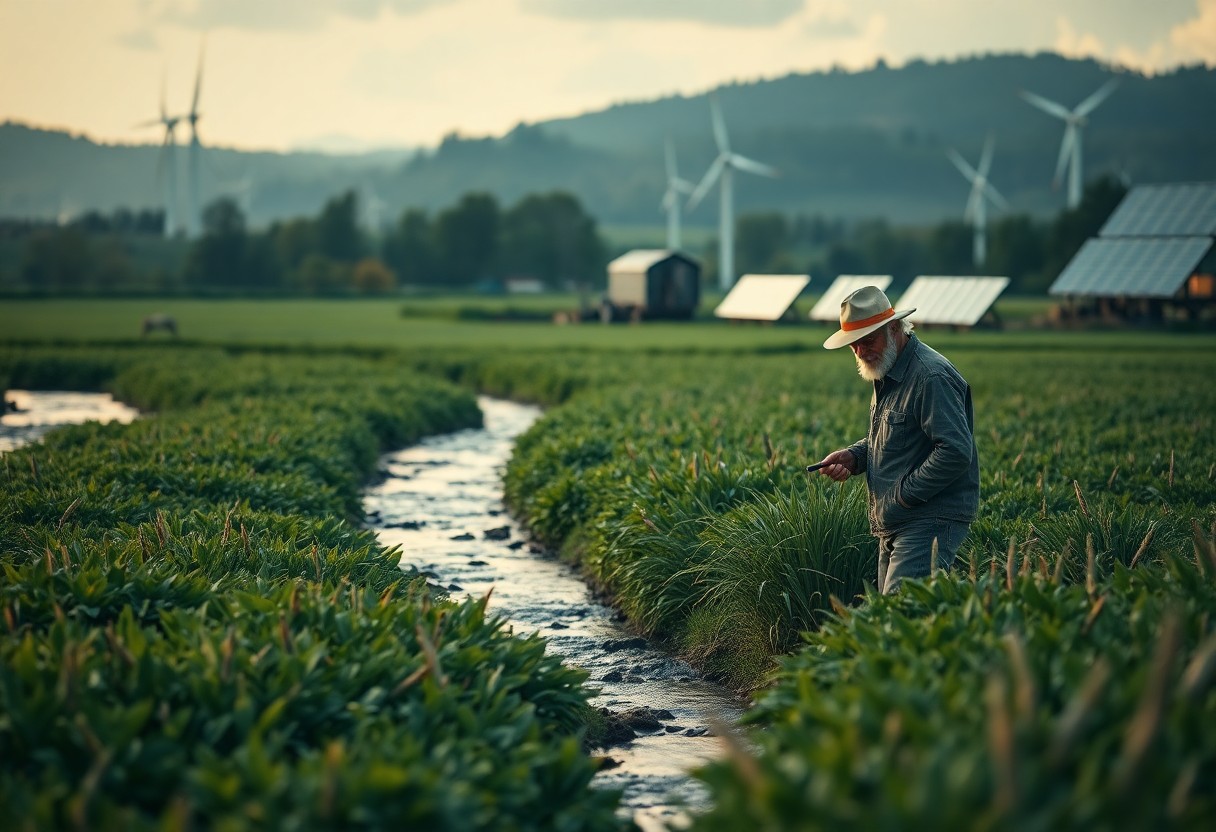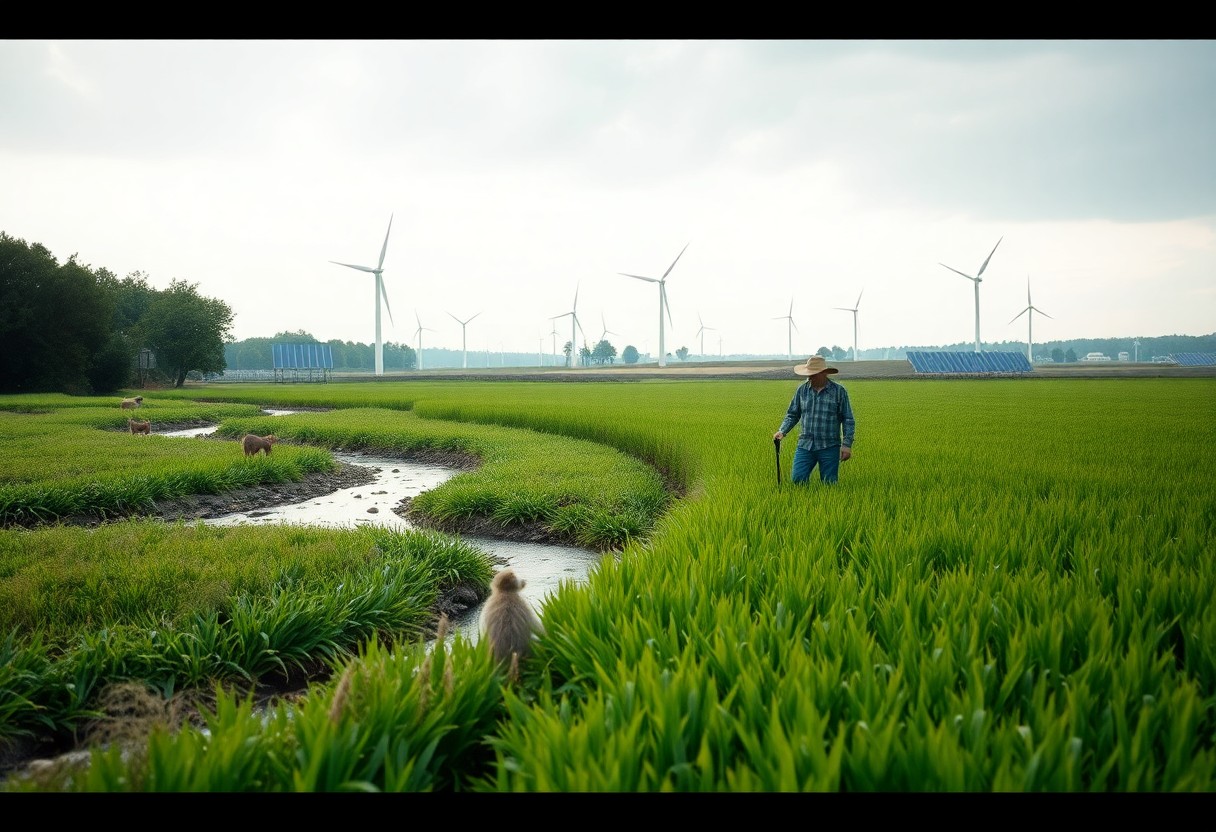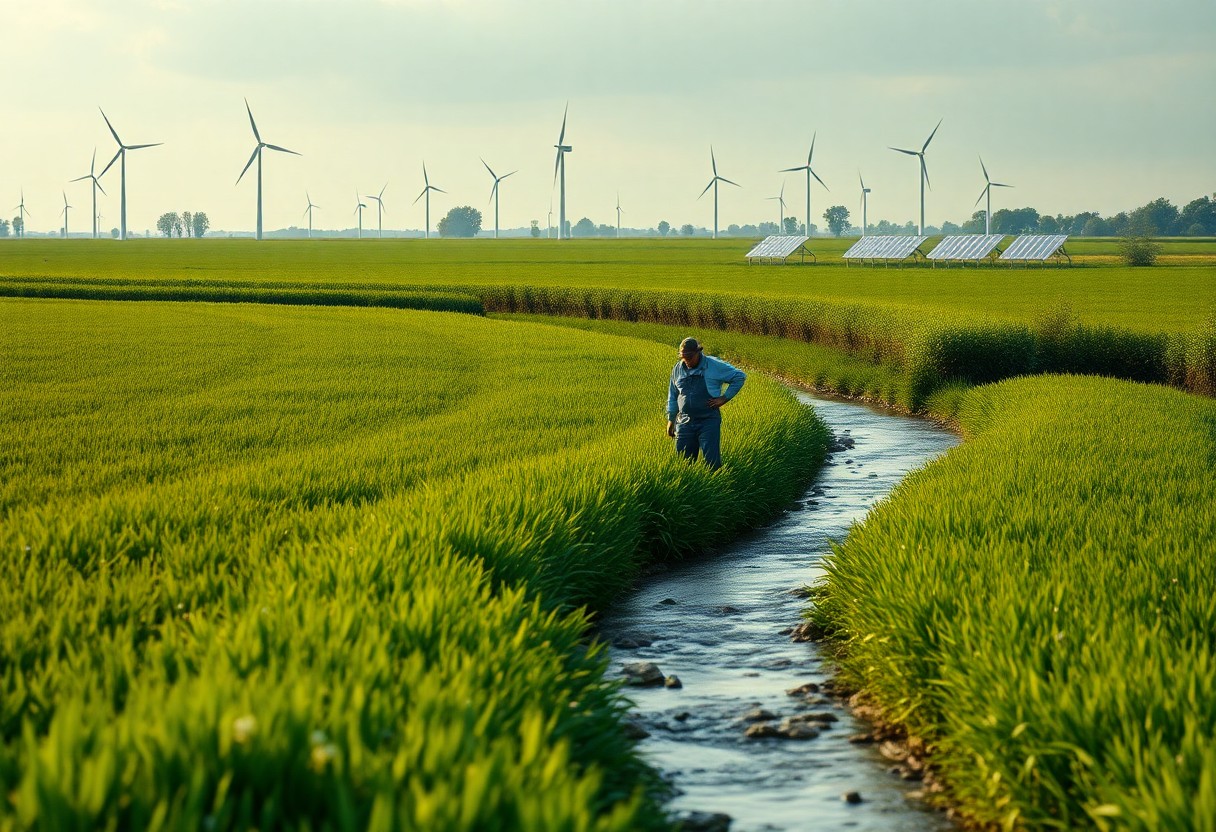Pollution poses significant threats to freshwater resources, directly impacting agricultural productivity and sustainability. By adopting effective strategies, you can play a pivotal role in combating water pollution and safeguarding these vital resources. This post will outline practical methods you can implement to minimize pollution, enhance water quality, and ensure the health of your agricultural practices. Understanding these strategies will empower you to make informed decisions, promote ecosystem balance, and contribute to a cleaner environment for future generations.
Understanding Water Pollution
As you explore the complexities of water pollution, it becomes clear that this issue poses a significant threat to our freshwater resources. Contaminants such as chemicals, heavy metals, and pathogens infiltrate water bodies, affecting their quality and availability. This pollution not only endangers aquatic life but also poses risks to human health and agricultural productivity, ultimately placing pressure on sustainable farming practices.
Causes of Water Pollution
Below are several factors contributing to water pollution. Agricultural runoff, industrial discharges, and improper waste disposal introduce harmful pollutants into water sources. Additionally, urban development leads to increased surface runoff, carrying debris and contaminants into rivers and lakes. Understanding these causes allows you to identify potential solutions for safeguarding freshwater resources.
Effects on Freshwater Resources for Agriculture
About 70% of the world’s freshwater is used for agriculture, making it vital that this resource remains clean. Water pollution can lead to reduced soil fertility and affect crop yields negatively. When your water sources are contaminated, it can impair plant growth and compromise the safety of the food produced, impacting both marketability and consumer health.
Also, polluted water can introduce harmful pathogens and toxic substances into your agricultural system, affecting livestock and potentially leading to foodborne illnesses in humans. This reduce not only affects your productivity but also poses long-term threats to the ecosystem and may necessitate costly remediation efforts. Therefore, addressing water quality is imperative for ensuring sustainable agricultural practices and protecting public health.
1. Promote sustainable agricultural practices and crop rotation techniques.
2. Implement buffer zones to filter runoff and reduce pollutants.
3. Utilize precision irrigation to minimize water waste and contamination.
4. Encourage organic farming to reduce chemical inputs.
5. Invest in wastewater treatment and recycling technologies.
6. Educate farmers on water conservation and pollution prevention.

Sustainable Agricultural Practices
There’s a growing recognition of the importance of sustainable agricultural practices to combat water pollution and safeguard freshwater resources. By implementing methods such as crop rotation, cover cropping, and efficient irrigation, you can significantly reduce runoff and nutrient leaching. You can explore more about these strategies through resources like Water Conservation Concerns, which provide guidance tailored to your specific agricultural concerns.
Crop Rotation and Diversity
With crop rotation and diversity, you can enhance soil health and reduce dependency on chemical fertilizers. By alternating crops, you not only improve soil structure but also disrupt pest cycles, leading to less polluting runoff and better water quality.
Organic Farming Techniques
On the other hand, organic farming techniques focus on natural processes to maintain soil fertility and minimize toxic runoff. This involves using compost, green manures, and organic pesticides instead of synthetic chemicals, fostering a healthier ecosystem.
Due to the absence of harmful pesticides and fertilizers, organic farming practices contribute to less water contamination. This not only benefits your crops but also supports local aquatic life and improves the overall health of freshwater systems. Employing organic methods can lead to sustainable yield improvements while protecting your water resources.
Water Conservation Strategies
Despite the ongoing challenges posed by water pollution, implementing effective water conservation strategies is imperative for safeguarding freshwater resources for agriculture. Key approaches, such as efficient irrigation systems and rainwater harvesting, can significantly reduce water waste, enhance productivity, and promote sustainable farming practices. By adopting these strategies, you can contribute to the health of the ecosystem while ensuring the longevity of your agricultural endeavors.
Efficient Irrigation Systems
Before selecting an irrigation method, consider the benefits of efficient systems like drip or sprinkler irrigation. These methods minimize water loss through evaporation and runoff, allowing you to direct water precisely where it is needed most. By using soil moisture sensors and scheduling irrigation based on weather forecasts, you can optimize water usage and ensure your crops receive adequate hydration without over-watering.
Rainwater Harvesting
Systems for rainwater harvesting offer an innovative way to capture and store rainwater for agricultural use. By installing tanks or cisterns to collect runoff from roofs and other surfaces, you can create a sustainable water supply that reduces your reliance on conventional sources.
For instance, incorporating a rainwater harvesting system on your property not only provides a supplemental water source for irrigation but also helps mitigate stormwater runoff, which can pollute local waterways. This practice allows you to utilize collected water when rainfall is scarce, ensuring your crops remain adequately irrigated throughout dry spells. Additionally, rainwater is typically free of the minerals and chemicals often found in traditional water sources, benefiting plant health and promoting better crop yields.

Soil Health and Management
To effectively combat water pollution and protect freshwater resources for agriculture, you must prioritize soil health and management. Healthy soils not only enhance crop productivity but also play a vital role in filtering and regulating water, preventing pollutants from reaching water bodies. By implementing best practices in soil management, you empower your land to better retain water, nutrients, and beneficial microorganisms that contribute to sustainable farming.
Importance of Soil Conservation
With a focus on soil conservation, you safeguard the unique biological and chemical properties of your land. This approach promotes sustainable agricultural practices that help maintain soil fertility, prevent erosion, and preserve water quality. By conserving your soil, you ensure that it remains productive for future generations while reducing the risk of nutrient runoff that can lead to water pollution.
Reducing Chemical Runoff
For successful agriculture, minimizing chemical runoff from your fields is crucial. Implementing practices such as cover cropping and reduced tillage can significantly decrease the leaching of fertilizers and pesticides into nearby water sources. By being mindful of the products you use and their application methods, you can contribute to cleaner waterways and healthier ecosystems.
Also, consider integrating precision agriculture techniques in your farming practices. By utilizing technology to monitor and adjust input levels, you can apply fertilizers and pesticides more efficiently, ensuring that only the necessary amounts are used. This not only improves your crop yields but also dramatically reduces the chances of runoff, ultimately protecting your freshwater resources. Additionally, maintaining vegetative buffers along waterways can help absorb excess chemicals before they enter streams and rivers, further safeguarding water quality.
Policy and Regulation Measures
All stakeholders, including governments and agricultural organizations, must come together to establish effective policy and regulation measures that protect freshwater resources. By enforcing stricter regulations on pollutants and incentivizing sustainable agricultural practices, you can help ensure water quality and availability for future generations. Strong collaborative efforts will promote responsible water usage and mitigate the impacts of water pollution on agriculture.
Implementing Strong Environmental Policies
Regulation is key to combating water pollution. By adopting strong environmental policies, you can create a framework that holds industries accountable for their discharge into water systems. This means implementing stringent standards and monitoring compliance to safeguard your freshwater resources. Engaging in dialogue with policymakers will also empower you to advocate for sustainable practices that protect both agriculture and water quality.
Incentives for Sustainable Practices
Policies that provide incentives for sustainable agricultural practices can significantly influence the way you manage your resources.
It is important to recognize that supporting incentives can foster innovation and promote environmentally friendly methods. By offering financial benefits, tax breaks, or grants for adopting sustainable practices, you can encourage farmers to invest in technologies that reduce water pollution. This approach not only empowers you to enhance your agricultural productivity but also contributes to the preservation of vital freshwater resources. By making sustainable practices economically appealing, you can actively shift the agricultural landscape toward greater environmental responsibility.
Community Engagement and Education
Once again, fostering community engagement and education plays a significant role in combating water pollution. By sharing information and resources, you empower your community to adopt sustainable practices. Visit Sources and Solutions: Agriculture | US EPA for resources that can guide your local efforts in protecting freshwater resources.
Raising Awareness on Water Pollution
The widespread awareness of water pollution issues strengthens community resolve. You can help by organizing informational workshops, distributing pamphlets, and leveraging social media to reach a larger audience. Engaging in these conversations ensures that everyone understands the implications of pollution on agriculture and health.
Involving Local Stakeholders
Community collaboration with local stakeholders enhances the effectiveness of water protection initiatives. By bringing together farmers, business owners, and local government, you can foster partnerships that share knowledge and resources.
Understanding the diverse perspectives of local stakeholders is vital for crafting effective strategies against water pollution. Engaging with farmers not only allows you to learn about their challenges but also provides opportunities to share best practices. Collaboratively identifying solutions can lead to more sustainable agricultural methods that benefit both the environment and the community as a whole.
To wrap up
So, to effectively combat water pollution and safeguard your freshwater resources for agriculture, you should implement strategies such as improving nutrient management practices, utilizing cover crops, and incorporating buffer zones around water bodies. Regular monitoring of water quality will help you identify issues early, while promoting sustainable farming techniques can minimize runoff. Engaging in community efforts and advocating for policies that protect waterways will also enhance your ability to maintain clean water for agricultural use. By taking these proactive steps, you contribute to a healthier environment and more sustainable agricultural practices.



